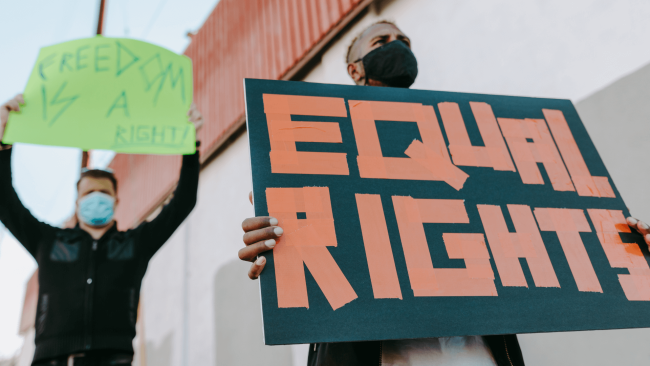Diversity, Equity and Inclusion
As a school dedicated to researching and teaching the cultures and languages of diverse communities around the world, SLLC is committed to working towards a more equitable, just, and inclusive society.
The Race, Equity, and Justice Committee was formed in the summer of 2020 by a coalition of faculty, graduate students, and staff. Our aim is to bring the SLLC community together to examine structural injustices in higher education and identify the transformations necessary to address them. To that end, we seek to increase opportunities for intellectual discussions, training, and self-evaluation.
Programs the committee has sponsored and organized include the Anti-Racist Futures Speakers Series, which hosts scholars and specialists in anti-racist theory and practices; the Decolonizing the Curriculum Series, a workshop series focused on equitable teaching practices; in addition to discussion forums, lectures and a book club.
SLLC Anti-racist Statement
As a school dedicated to researching and teaching the cultures and languages of diverse communities around the world, SLLC is committed to working towards a more equitable, just, and inclusive society. This means not only promoting cross-cultural communication and appreciation for the contributions to knowledge and culture of diverse human groups worldwide but also examining and questioning foundational and ongoing acts of violence and oppression at home and abroad.
- In our practice, we engage with theories that address issues of colonialism, articulations of race, gender, class, and linguistic power struggles with the aim of understanding and challenging systemic oppression.
- We firmly believe multilingual education is essential to a more just and inclusive society. By promoting a large sample of languages and cultures, we challenge the predominance of English as the chosen language of globalization.
- We recognize that the languages we teach, in many cases, are connected to histories of colonial and imperial oppression and the genocide of indigenous peoples. By addressing this historical legacy and its continuing impact in societies around the world, while also advocating for the expansion of our scholarship on the languages and cultures of marginalized communities, we aim to expand our perspectives to counter this legacy of continuing historical erasure.


Decolonizing the Curriculum Workshop Series
Linguistic Justice: What can we do to create a more equitable classroom and university?
Language and Antiracism in the Classroom: Practical Approaches
Antiracist Pedagogy for Spanish Language Teaching: From Theory to Practice
Teaching for Change: Roberto Lovato Talk
Land Acknowledgement
Every community owes its existence and strength to the generations before them, around the world, who contributed their hopes, dreams, and energy into making the history that led to this moment.
Truth and acknowledgement are critical in building mutual respect and connections across all barriers of heritage and difference.
So, we acknowledge the truth that is often buried: We are on the ancestral lands of the Piscataway People, who are the ancestral stewards of this sacred land. It is their historical responsibility to advocate for the four-legged, the winged, those that crawl and those that swim. They remind us that clean air and pristine waterways are essential to all life.
This Land Acknowledgement is a vocal reminder for each of us as two-leggeds to ensure our physical environment is in better condition than what we inherited, for the health and prosperity of future generations.
Land Acknowledgement


